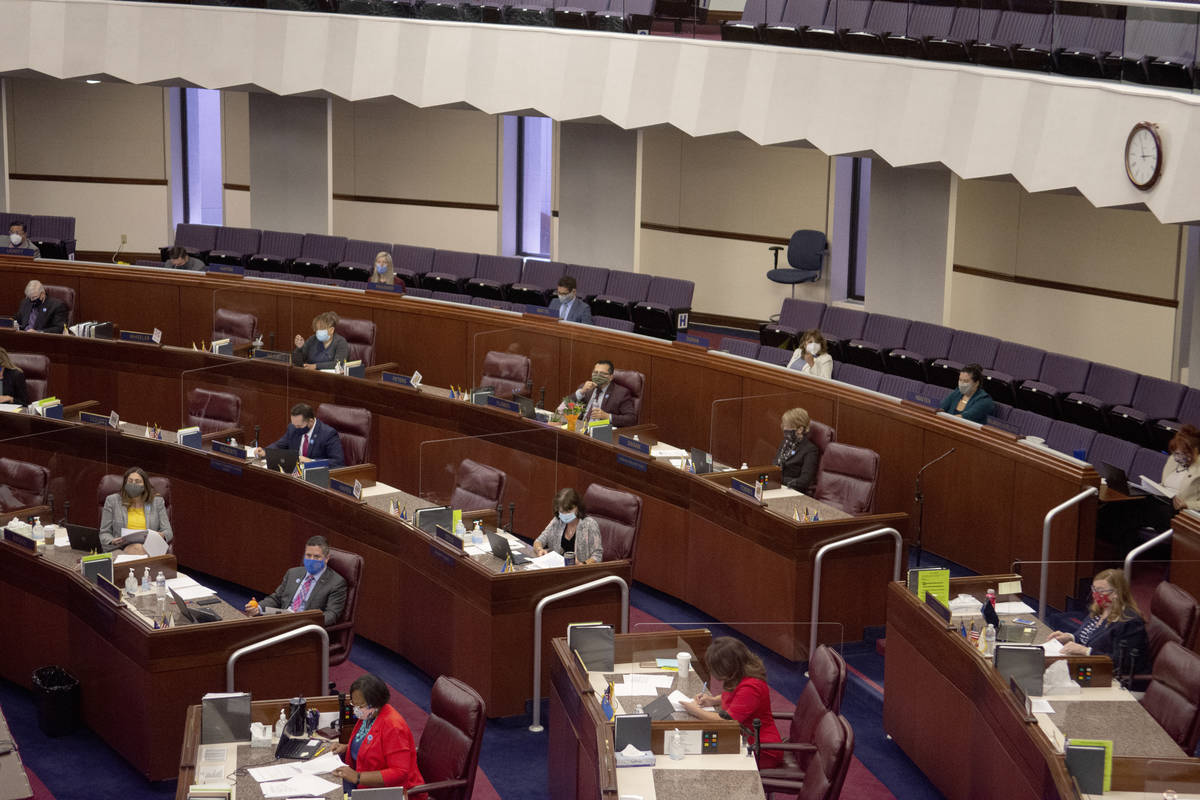STEVE SEBELIUS: When litigation is legislation by other means
‘Every American who is eligible to vote should be able to freely do so. Robust participation in our biennial elections strengthens the Nation’s civic fibers, allowing the United States of America to retain its place as the world’s pre-eminent constitutional republic.”
That’s a passage from a lawsuit filed against Secretary of State Barbara Cegavske, seeking to enjoin several sections of a new elections law passed in the most recent special session of the Legislature.
The law in question, Assembly Bill 4, contains a similar paragraph, saying the bill was written to “ensure that every person who is eligible and wants to register to vote in any affected election is able to do so safely and securely.”
So everybody’s on the same page, right?
Hardly.
The lawsuit, filed by Donald J. Trump for President Inc., the Republican National Committee and the Nevada Republican Party, contends that several provisions of AB4 are unconstitutional and will dilute some voters’ rights, undermine confidence in the electoral process, create incentives to stay away from the polls and make voter fraud inevitable.
Which is odd, given that the stated purpose of the bill was to ensure that all voters have a chance to participate in the election — either by mail or in-person — while also staying safe from the coronavirus.
Like nearly all warnings of voter fraud, the allegations in the Trump litigation are qualified: The law may, might, maybe, could, potentially, possibly lead to fraud. The state’s response asserts that even if there’s the potential for fraud, the lawsuit cannot be heard before the claimed fraud actually occurs.
By then, of course, the election will be over. But there’s a certain logic to barring lawsuits alleging harm until the injury has actually occurred — and only then assigning remedies.
The Trump claims are summarized as follows:
A section of the law allows mail-in ballots — without a postmark or where the postmark is illegible — that are received within three days after the election to be counted on the presumption they were mailed on or before Election Day. Trump’s side claims this unconstitutionally extends Election Day by allowing votes to be cast after the election.
But this provision already exists in state law; it was added by an action of the Legislature in 2019, and nobody sued then. Plus, it’s not unreasonable to make the assumption.
Allocating voting sites by population treats rural voters unequally by offering fewer locations to cast a ballot. But, as the state notes in its reply, the law sets only a minimum number of sites based on population. Local officials can add more if they so choose.
And isn’t it rational that voter rich Clark County (1.1 million active registered voters in July) would need more in-person voting sites than, say, Esmeralda, Eureka, Lander, Lincoln, Mineral, Pershing or Storey counties, each of which has fewer than 2,000 voters?
That’s true even if, as the Trump plaintiffs note, there are more registered voters per polling place in those counties than in Clark and the wide-open spaces mean some rural voters may have a longer commute to the polls, if they choose to vote in person.
Two ballots mailed in the same envelope could result in fraud. This, apparently, is a rare occurrence, but both AB4 and current law say the same thing: If two ballots are included in the same envelope, they are to be set aside and not counted. Voters should take care to follow directions and place only one ballot in each envelope to ensure every vote is counted.
The law potentially allows for different counting standards in different counties. The law does say “the county or city clerk, as applicable, shall establish procedures for the counting and processing of mail ballots.” But the state maintains that provision exists to allow some counties to use methods adapted to local needs. (Clark County, for example, may use electronic scanning machines to count ballots, while other counties may do so manually.)
While the Republicans argue AB4 is an affront to democratic processes that will erode confidence in the election, the state says the litigation is legislation by other means.
“These competing arguments amount to a public policy debate, not a legal debate,” the state’s response reads. And that debate was had in the Legislature. Yes, all Republicans voting said no, but a law doesn’t lose its force simply because it passes on a party-line vote.
Everyone seems to want all eligible, registered voters to participate in the November election. But there’s virtually no agreement on how best that should be done
Contact Steve Sebelius at SSebelius@reviewjournal.com or 702-383-0253. Follow @SteveSebelius on Twitter.

















